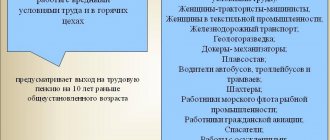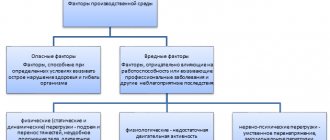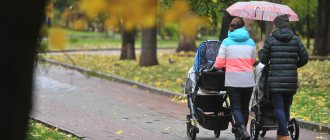What benefits can children from large families count on when entering an educational institution?
In different regions of our country, the concept of a large family may differ slightly. Today, the main document regulating the issue of assigning the status of a large family is the Decree of the President of the Russian Federation “On measures of social support for large families.”
The financing procedure is developed by the Ministry of Finance. This is done because in different regions of our state, families with different numbers of children can be considered large.
For example, in some regions three or more children are very rare, while in others it is the norm. It is for this reason that in different parts of our country the criteria for “large families” can be completely opposite.
About ten years ago, in the Moscow region, only those families in which the youngest child was not yet sixteen years old began to be considered large. If the offspring is studying at a university or college, then this limit increases to the age of eighteen.
Before applying for benefits to the relevant authorities, you should first find out about the legislative acts in force there.
Things are completely different in the Republic of Udmurtia. In it, only those families with three or more children under eighteen years of age are considered to have large families. If they study at academies, universities and institutes, then this period increases to twenty-three years.
The educational legislation of the Russian Federation obliges each university, institute and academy to provide certain benefits for admission.
We are talking only about certain categories of citizens. This norm must necessarily be regulated by the internal regulatory documents of a particular university.
The number of preferential categories of citizens who have certain rights to receive benefits includes:
- minors who are raised in large families;
- mothers raising children without a father, who are raising three or more children.
All these citizens have certain advantages over other applicants. Their number is determined solely by the internal documentation of the academy, university and institute
Please note that benefits for admission to higher education and other quotas are regulated only at the regional level
If no guidance can be found in the legislation regarding the provision of benefits, then this can be compensated by regional legislation in force.
It is usually adopted at the local level. In some areas of our state, a quota for admission to an institute or academy may be established.
There are other types of benefits, for example, funds are allocated that can cover part of the costs of food, clothing and office supplies. At first glance, it seems that such amounts are very small. But if you look at it from the other side, then such financial assistance is a significant increase in the scholarship awarded.
Students who are raised in large families have the legal right to receive the following benefits:
- for transport tax;
- such children can receive land, which they have the right to use completely free of charge;
- parents can apply for payments for their third and other children under three years of age. The amount of such financial assistance is determined based on the subsistence level in a given region;
- a mother of many children has the right to receive a pension from the age of fifty;
- flexible work schedule;
- Parents of large children can count on free education in areas that are currently in demand in the labor market in a particular region.
Benefits for children from large families upon admission to a higher education institution
- Students who have only “Excellent” grades based on the results of the previous academic year. The discount is valid for one academic year.
- Applicants who have a medal “For exceptional academic achievements” or a certificate with honors of basic general education. The discount is valid for one academic year.
- Students from a large family who are receiving full-time higher education for the first time and are dependent on their parents. The discount is provided for one year with subsequent extension.
- Orphans and children under the guardianship (trusteeship) of an individual, institution (boarding school), studying full-time. The discount is provided for one year of study with subsequent extension.
You might be interested ==> Selling an apartment after renting
Benefits for large families when entering a university
In the case of rights and benefits for large families in Russia, there are quite a lot of controversial and even completely unclear issues. For example, if the institute is state-owned, then a 50% discount on tuition, as well as a 20% quota for admission remain in force. And if the university does not have state status, then there may not be such benefits for these categories of applicants.
- for transport tax;
- to receive land for use free of charge;
- receiving payments for the third and other children under 3 years of age (at the level of the regional subsistence level);
- receiving a pension for a mother of many children from the age of 50;
- flexible work schedule;
- free education for parents in areas that are in demand in a particular region.
Such families receive much less help from local authorities. Often everything is limited to the possibility of organizing leave for children or providing housing, but this happens extremely rarely and only in exceptional cases.
Benefits for applicants to universities
Families with three or more children are considered large families. They are often considered to be in need of government assistance because they are constantly short of funds. But lately the state has been paying less and less attention to them. The only legislative act that today is aimed at supporting large families is the Presidential Decree of 2003, but it does not contain clear instructions regarding the provision of benefits for the admission of children from large families to universities.
Parents should support their child’s participation in all kinds of competitions and Olympiads. Having shown good results, he will not go unnoticed and will be able to enter any university in the country without competition. This may require attending paid courses and tutors. However, such investments will pay off after graduation.
Graduates of schools, colleges, as well as graduates of higher educational institutions with other specialties can enter the university on a paid basis. The cost of training at the Institute of International Economic Relations is fixed for the entire period of education. Permanent discounts are provided for different preferential categories.
Types of benefits for children from large families entering university
According to Russian legislation, each educational institution must provide quotas as benefits for large families when entering a college or university. This must be recorded in the internal papers of the institution.
The issue of studying at a Higher Educational Institution for families with a large number of children is acute. After all, its cost is quite high, and doing it yourself is often extremely difficult.
Who is entitled to benefits when enrolling in school?
For example, for people with visual impairments of group 2, it is necessary to use special means (not only the use of special glasses and contact lenses), but if we are talking about problems with the limbs, it is impossible to do without additional services. Large families
- deceased or deceased law enforcement officers due to injury or other damage to health during the performance of official duties;
- employees of the Ministry of Internal Affairs of the Russian Federation;
- deceased employees of the Ministry of Internal Affairs of the Russian Federation due to injury or illness;
- dismissed employees of the Ministry of Internal Affairs of the Russian Federation or who died during the first year after dismissal, the main condition being dismissal or death due to injuries caused during service;
- police officers with dependent children;
- military personnel, including military pensioners and disabled people;
- other categories of citizens.
Benefits when entering college
Each category of citizens can claim certain benefits when entering an educational institution, provided for in the norms of the current legislation of the Russian Federation.
According to quota
The following categories of entities can receive a quota:
- children with disabilities, namely, disabled people of groups 1 and 2;
- persons who were injured during hostilities or during military service.
No exams
Admission to college without passing entrance exams is allowed for the following categories of citizens:
- the child took part in the All-Russian Olympiad and took one of the prizes;
- the citizen took part in international competitions;
- The applicant passed the Unified State Exam with Fr.
It is important to pay attention to the fact that the specialization for which the student enters meets the profile of the Olympiads won.
Are there any transport tax benefits for pensioners? See here.
Out of competition
Without participation in the competition, the following categories of students are accepted:
- orphans and children whose parents have been deprived of parental rights in relation to them;
- disabled people belonging to the first two groups;
- persons affected by radiation sickness and other diseases associated with man-made disasters;
- students who have only one parent who is a group 1 disabled person;
- persons serving under contract.
Other persons for whom this right is assigned by the legislator may apply outside the competition.
What regulations should be followed?
The main regulation of issues related to the provision of various benefits and privileges to large families is still carried out with the help of Decree of the President of the Russian Federation number 431, adopted on May 5, 1992 to support large families. This Decree also defines the right of regions to determine which family in a particular subject of the state can be considered large. In addition, it is on the basis of this Decree that the regions are delegated the right to establish their own benefits and allowances for families recognized as large.
On December 29, 2006, the Federal Law “On additional measures to support families with children” was adopted. It was with this law that the active implementation of various support measures for families who decided to have a second or subsequent child began.
It came into force on January 1, 2007 and at that time provided payments to families in which a second or subsequent child was born after January 1, 2007. Currently, this federal law has been extended until December 31, 2021 and is aimed at further stimulating the birth rate
With regard to large families, this law in its latest edition contains an important innovation, which allows families raising three or more children, if they are recognized as low-income or low-income, to receive a certain amount monthly from maternity capital for the maintenance of the family. The total amount of this certificate will be reduced by the amount received
Federal Law No. 173-FZ “On Labor Pensions in the Russian Federation” also acts as one of the regulators of the rights of large families. However, its effect extends, first of all, to mothers who are raising five or more children, in the form of providing the opportunity for early retirement if they have a total work experience of at least fifteen years. The benefit provided by this law is paid only to those women who have raised more than ten children, as an addition to the existing pension. Other benefits are not provided for by this law.
Federal Law No. 81-FZ “On State Benefits for Citizens with Children,” adopted on May 19, 1995, provides for various payments to large families in the form of monthly, annual or one-time benefits that are provided to maintain the proper level of material well-being of a particular family.
Since most of the benefits paid to large families are provided at the level of regional budget injections, they will be regulated on the basis of current legislation in the field of ensuring the interests of large families at the level of the constituent entity of the Russian Federation.
List of benefits for large families
The list of benefits provided to families with many children is listed in the relevant presidential decree:
- discount on payment for housing and communal services in the amount of at least 30%: for electricity, gas, sewerage, water and heating;
- if their place of permanent residence is a room where there is no central heating, they are provided with compensation for fuel for heating the home;
- issuing free medicines for children under six years of age: this means only medicines prescribed by a doctor;
- privileges when entering kindergarten: children from large families are admitted there first;
- free school lunches, breakfasts;
- free issuance of a school uniform or a set of clothes necessary for attending school classes;
- free issuance of sports uniforms for the full period of study at school;
- free tickets to exhibitions, recreation and cultural parks, museums: provided once a month;
- the right to free travel: on public transport (city buses, metro, trolleybus, tram), on intra-district and suburban buses;
- providing assistance to those wishing to organize a farm, peasant farm, small enterprise and other commercial structures: in this case, land plots can be allocated and benefits for land tax, rent, financial assistance provided, interest-free loans issued to reimburse the costs of developing this farm;
- partial/full exemption from registration fees (for entrepreneurs);
- priority allocation of gardening areas;
- issuing subsidies, interest-free loans, preferential loans for the purchase of building materials and for the construction of real estate.
Read about government support for single mothers here.
About benefits
According to the legislation of the Russian Federation, large families include those families in which there are at least three children who have not reached the age of majority
.
Such families should have a certain range of benefits.
But if one child has already reached the age of majority, then the status of a large family is automatically removed, and along with it the benefits that were previously provided to the family disappear.
But in the case of an adult studying at a higher educational institution, the benefits will not be withdrawn, and the status will also remain until he turns 23 years old
.
Large families have some benefits that are regulated by federal laws. These benefits, for example, relate to certain issues related to education. For example, parents from a large family receive an annual sum of money for some expenses related to children
, for example, to buy a school uniform.
Also, such children receive free meals in their places of study.
, they are provided with land plots for further housing construction.
Children living in a large family have the right to travel free on public transport
.
Such families do not receive much help from local authorities; the option of organizing holidays for children or resolving the issue of providing housing is possible
, but this is in very rare cases.
As for the issue of admission of such children to educational institutions, it is decided from kindergarten.
In this regard, a large family has a great advantage over other families; they do not wait until their turn comes. There are no problems when entering school either.
, the child is taken to his place of residence, without any kind of trouble.
But what about the admission of children from large families to a university, since the law on supporting such children says nothing about admission?
There are benefits only for some categories.
What benefits do children enjoy?
at the time of admission to a higher education institution:
- they can be admitted to the university on a non-competitive basis. But this will happen when they appear;
- children have a certain advantage in admission over others when their parents are participants in military actions or “Chernobyl victims”;
- Children are enrolled in higher institutions according to a quota, only if they are disabled or.
Unfortunately, none of these benefits are suitable for those from large families
.
They, of course, will be able to have an advantage in admission, but for this they will need to be winners of Olympiads, children of war veterans, or disabled people and orphans.
But as a benefit, one can consider the advantage of transferring to a budgetary basis if the results of educational activities are positive.
This type of preferential basis is not regulated by any law, but it exists in the documentation of the university.
Various benefits for students in Russia have been written about.
Financial assistance for families with many children in 2021
Benefits paid at the birth of children
At the birth of each child, the state allocates funds from the federal budget to provide financial assistance to large families in the form of one-time payments and benefits paid monthly until a certain age of the child.
| Type of payment | Payment amount |
| Early registration for pregnancy (up to 12 weeks) | About 600 rubles (one-time) |
| Birth of a child | About 17,000 rubles |
| Maternity payments | At the minimum rate or calculation according to the formula (one-time) |
| Child care up to 1.5 years old | From 3000 to 20000 (monthly) |
| Child care up to 3 years old | 50 rubles (monthly, with subsequent indexation), 280 rubles (monthly, for single mothers) |
The table shows the average values for the minimum bet. The final amount depends on the mother's income over the last two years. There is a special form for calculating maternity leave (D), which takes into account the number of days of maternity leave (A), the amount of average income for the 2 previous years (B) and the number of working days for these 2 years (C):
D = A*(B/C)
This formula is suitable for working mothers with at least six months of work experience. In other cases, the minimum wage of a specific region is simply taken into account.
In a large family, payments will differ in payments for child care up to one and a half years old. If an unemployed woman receives about 3,000 rubles for her first child, then since 2021 an unemployed mother with many children receives about 6,000 for each child, that is, approximately 17,000 rubles per month. Monthly benefits for up to three years for a third child are provided in accordance with clause 2 of Decree of the President of the Russian Federation dated May 7, 2012 No. 606 “On measures to implement the demographic policy of the Russian Federation.”
Measures to implement demographic policy (Part 1)
Measures to implement demographic policy (Part 2)
Working mothers with many children submit documents at their place of work, non-working mothers must contact the social protection authorities.
Financial assistance in school education
In some regions, there are special regulations on regional one-time benefits, according to which additional funds are allocated from federal funding to large families who are low-income.
The payment amounts are:
- 7,500 rubles - one-time, for families in which the child enters first grade;
- 15,000 rubles - one-time, to prepare a first-grader for school, if there are at least 10 children in the family;
- 5,000 rubles - one time, to prepare children for school - students in grades 2 - 11.
Financial assistance in school education for large families
Such benefits imply a one-time payment for each child. Cash benefits are also issued for the purchase of office supplies in a smaller amount, but on a monthly basis.
To receive payments, you need to contact the social security of your region, find out if this type of financial support is available, and if available, clarify the list of required documents. Typically, the following are required: the applicant’s passport, an application, a certificate of family composition, a birth certificate of the child who is receiving this assistance, a certificate from the school about the child’s enrollment, bank details (you can download the application form for financial assistance in school education here).
The advantage of this benefit is that there is no need to submit reports on the expenditure of funds.
Amounts of benefits for citizens with children, from February 1, 2021, paid from the funds of the Social Insurance Fund of the Russian Federation
Benefits for purchasing tickets
Current legislation at the federal level (based on Decree of the President of the Russian Federation No. 431) has established the possibility for large families of preferential procedures for purchasing tickets to various entertainment events.
The purchase of such tickets is carried out once a month for those entertainment events that are organized in state and municipal cultural institutions. In accordance with the current legislative rules, parents either pay in full for the purchased tickets, and then receive monetary compensation in the amount of one hundred percent of the cost of the purchased ticket, or receive such tickets from the social welfare authorities on a free basis from the available list of tickets.
When purchasing such tickets, it is necessary to take into account that compensation or the tickets themselves are provided for one parent and for those children who have reached the age limit for a particular entertainment event.
In order to receive free tickets or compensation for their purchase, you must contact the social security authorities with a corresponding application, confirmed by a certificate from a large family. The application is processed within five to ten days. If tickets are available, they will be allocated based on the number of children who can attend the event based on the established age limit, as well as per accompanying adult.
Where to contact?
To prepare documents, you must contact the local authorized body
Read more: Contract for the purchase of building materials sample
The process of receiving benefits for large families is regulated by law. To obtain them you can contact:
- to the authorized body under the local administration;
- to a multifunctional center, if there is one within the city or district.
But before applying, you should find out about the list of required documents. To obtain them you will need to visit the following institutions:
- an organization that deals with civil registration;
- Center for Social Protection of Citizens;
- parents' place of work;
- to the labor exchange, if there is no official place of work;
- to the BTI to obtain a document on the joint residence of children and parents.
There is no specific procedure for applying for benefits that is suitable for each region of the country, since they are determined at the local level and can be different everywhere.
If you have any questions, please contact the Center for Public Safety and Health
If any difficulties arise during the process, you should definitely seek help from the social protection authorities. Here citizens can receive all the necessary consultations and advice. Also, employees of this body are obliged to provide legal assistance to vulnerable segments of the population.
Special attention can be paid to benefits for studying at a university for single mothers with many children. They earn a lot more because of their single mother status.
If the rights of a single mother with many children are violated, she can contact one of the following bodies:
- to the department of social protection of the population at the local administration;
- to your local courthouse;
- to the prosecutor's office.
It all depends on the severity of the issue. If you cannot solve it through the social service, then to protect your rights you should go to court or the prosecutor's office. These bodies (especially the court) have a lot of leverage over the relevant authorities, which helps them resolve almost any issue.
Types of benefits for children from large families entering university
Benefits for entering a university or college for large families are divided into three types:
- obtaining a place without passing entrance exams and passing a competition;
- obtaining a place according to quotas;
- preferential opportunity to enroll if other applicants have an equal number of points.
Depending on the place of residence, educational benefits may include compensation payments for travel to the location of the university and the purchase of clothing, provision of a place in a dormitory, meals, provision of stationery, etc.
Some educational institutions stipulate in their statutory documents that preferential categories of students have the right to switch from a paid to a budget place due to good academic performance, if such places are available.
Quotas
According to Russian legislation, each educational institution must provide quotas as benefits for large families when entering a college or university. This must be recorded in the internal papers of the institution.
Quotas are also provided to families raising three or more children. The number of allocated seats and the value of privileges are determined by internal documents. Such standards are not established at the state level.
Regional privileges
In the region, privileges may include the following benefits along with allocated quotas:
- partial compensation of costs for food and clothing;
- tax incentives for transport;
- obtaining a land plot for use;
- issuance of funds (certificates) at the birth of the third and subsequent babies;
- flexible work schedule;
- lowering the retirement age for mothers;
- training parents free of charge in areas that are in demand in the region.
All of the above will make training a family member much easier.
Special payments
Special payments (social) can be established by institutions in local acts. The amount of monetary compensation depends on the academic scholarship. Money is awarded to the following groups of students:
- Orphans and children left without parental care (including their loss during education).
- Persons who have been exposed to radiation.
- Disabled since childhood, first or second group.
- Poor people.
All payments are due only to full-time students. If a member of a large family studies well, the amount of social benefits may increase. Its minimum size cannot be lower than the minimum wage. Local acts of the institution may establish other types of financial assistance to students.
Special rights upon admission
Different groups of applicants are given advantages when enrolling. This includes the following categories of applicants:
- children of military personnel with twenty years of experience (if we are talking about entering a military-type educational institution);
- winners of the Olympiad, prize-winners of competitions in specialized areas for the four years preceding the submission of the application for admission;
- graduates of specialized institutions under the jurisdiction of government bodies that train civil servants or military personnel.
Citizens included in any category receive additional privileges when enrolled in budget-funded places.
What benefits are available to large families when entering a university?
Next, you need to submit a package of documents to the university admissions committee, starting from June 20. Basic documents include a passport, a certificate of secondary education and an application for admission with a personal signature.
Controversial issues
To enter a university, an applicant must first pass the Unified State Exam in several disciplines that are mandatory in the chosen field of study.
You might be interested ==> What bailiffs can and cannot arrest
These benefits and quotas could perfectly help children from large families obtain higher education, but, unfortunately, the law was never adopted. Therefore, at the moment, this category of children does not have any advantages over others .
But it contained provisions that could provide all large families with very good benefits. For example, it contained benefits related directly to studying and entering a university:
What to collect?
And the final rule is to provide the necessary documents to the University Admissions Committee, which begins its work on the 20th of June. Required documents include the following :
- Orphans and children left without parental care (including their loss during education).
- Persons who have been exposed to radiation.
- Disabled since childhood, first or second group.
- Poor people.
All payments are due only to full-time students. If a member of a large family studies well, the amount of social benefits may increase. Its minimum size cannot be lower than the minimum wage. Local acts of the institution may establish other types of financial assistance to students.
Special rights upon admission
According to Russian legislation, each educational institution must provide quotas as benefits for large families when entering a college or university. This must be recorded in the internal papers of the institution.
According to the bill, applicants from families with three or more children may be given priority for enrollment in bachelor's and specialty programs. In this case, an important condition is the successful completion of entrance examinations.
“The message [of the President of the Russian Federation to the Federal Assembly] noted that the long-term policy of family support should be based on specific life situations faced by citizens, including large families,” states the explanatory note to the document.
In February, Vladimir Putin signed a law according to which benefits for orphans when entering universities are extended indefinitely. In addition, the right to budget-funded places for disabled people injured in military service is being extended.
- admission without passing tests;
- enrollment in a preparatory course on a budget basis;
- benefits when obtaining a student card;
- other concessions provided for by the regulatory documents of the university where you plan to enroll.
What benefits are entitled to a child from a large family when entering a university in 2021?
- orphan child;
- a child left without parental care;
- a disabled child, as well as a disabled person of group 1 or 2;
- a child under twenty years of age, raised by one parent with a Group 1 disability, if the family is recognized as low-income;
- exposed to radiation due to the disaster at the Chernobyl nuclear power plant and subject to Federal Law No. 1244-1 of May 15, 1991;
- child of a deceased Hero of the Russian Federation, USSR, full holder of the Order of Glory;
- a child of a person who died as a result of an injury or illness received in the service of an employee of the prosecutor's office, internal affairs department, National Guard, Federal Penitentiary Service, Ministry of Emergency Situations, Investigative Committee, customs;
- combat participants and veterans;
- persons who took part in nuclear weapons tests, as well as those who prevented the consequences of nuclear accidents;
- contract servicemen with more than three years of experience and conscripts who have recommendations from their commanders to enter a university;
- persons who, as part of their duty, carried out tasks in the context of an armed conflict in the Chechen Republic (officers of the Department of Internal Affairs, Ministry of Emergency Situations, Federal Penitentiary Service, military personnel).
The last category includes information: about disability, about victory or a prize place in a regional, all-Russian or international Olympiad, about inclusion in the Russian national team in the subject, etc.
Are large families entitled to benefits when enrolling in a university, college or technical school?
Every person has the right to receive an education.
Unfortunately, some families, for objective reasons, cannot afford to pay for their offspring’s studies in higher educational institutions. In situations where parents do not have enough money not only to maintain, but also to raise their own children, they rely on government support and financial assistance.
In this case, we are talking about children getting an education. This is very important, since studying at an institute, university, college, college is the guarantee that a child will be able to find a good job in the future and provide for himself financially.
Are there benefits for large families when enrolling their children in higher education institutions? Once the children reach the age of eighteen, the status of a large family is automatically removed . It is for this reason that all benefits disappear.
For example, if a child is studying at a higher educational institution, then the current status will not be removed. It lasts until he reaches twenty-three years of age.
Some benefits for families relate to children's education. For example, a father and mother receive a certain amount of money annually to purchase a school uniform or various supplies (stationery).
Of course, this is not enough. Children need to not only be fed, clothed, and provided with all the necessary things, but also given an education. Without it, they will not be able to find their place in society.
To become an independent, self-sufficient member of society, you need to get an education. Unfortunately, families with many children cannot afford this. In many universities, tuition is paid.
You can enroll in free education only if you have certain benefits, as there is always a lot of competition. That is why children from the families in question must have state support.
Such citizens receive significantly less assistance from local authorities. Often, all this is limited to the possibility of organizing vacations for minor children or providing living space. Unfortunately, this doesn't happen often. This is rather an exception.
Families do not need to wait on a waiting list to enroll in preschool. Children from such families are accepted into any educational institutions at their place of residence. They do not need to register for kindergarten.
However, when entering a university or academy, there is absolutely no guidance in the current legislation. Here it is customary to use exclusively general legislative norms that relate to different preferential categories.
If a child decides to go to university, he may qualify for the following benefits:
- children who took part in Olympiads and also won them can be enrolled in universities outside the main qualifying competition;
- Children of Chernobyl survivors enjoy special advantage;
- There is a quota for the disabled and orphans.
Children from large families do not fall into any of these categories. There are no specific benefits for them.
Read more: If a passenger doesn’t wear a seatbelt, who gets a fine?
This norm is not specified in any legislative act. However, many higher education institutions include it in their documentation.
How to receive due payments and social support measures?
Regardless of what kind of social support measure or payment we are talking about, they can only be received if the family has confirmed from a documentary point of view its status as a large family and the right to receive such support measures (especially such confirmation is required for those cases when we are talking about large regional payments, for example, when raising a tenth or subsequent child in a family).
The legislator does not make any distinction in order to receive certain support measures, whether we are talking about natural or adopted children - they are equal in status if all legal procedures are followed.
The procedure for receiving certain payments and support measures looks standard if you contact the social protection authorities:
- Submitting an application in the form established for a specific type of social assistance. The text of the application should indicate the reasons why the family needs this or that type of assistance, as well as compile a list of documents that will confirm the status of such a family as a large family and in need of assistance.
- Providing a package of accompanying documents to receive one or another type of assistance. It should be understood that for each specific type of assistance we will be talking about its own list of documents, since you will have to confirm different aspects of the family’s life.
- Receiving a response on the provision or refusal to provide one or another type of assistance from the state. In any case, the response must be motivated, and in case of refusal, a description of the reasons for the refusal must also be provided. If the answer is negative, it must be put in writing by drawing up a special document.
The main documents that may be needed to receive one or another type of assistance include:
- the applicant’s passport as a representative of a large family;
- identity documents of all adult and minor family members who live together and have the same status of a large family;
- certificates of parents' income (if, for example, we are talking about providing subsidies to compensate for part of the costs associated with utility bills or paying for kindergartens, additional sections and clubs that children attend);
- certificates about the need to improve housing conditions (if we are talking about construction or major repairs and the provision of subsidies for these actions);
- documents on the right to use or own a specific residential premises, as well as on the absence of debts on existing utility bills, if we are talking about providing subsidies for the payment of such payments;
- certificates stating that the family is recognized as low-income (if the actual level of income of such a family does not correspond to the minimum subsistence level established in the region);
- details of the bank account to which certain subsidies or benefits will be transferred (the account must be opened in the name of one of the parents).
In some cases, it may be necessary to provide additional documents, the list of which may vary depending on what kind of benefit or subsidy we are talking about in each specific case. Most often, additional documents are required to provide regional and municipal subsidies and benefits, which are determined by the relevant rules of law.
Large families living in the Russian Federation often need various types of assistance, including in the form of special payments and subsidies. This is due to the fact that raising each child requires a large level of financial expenditure. For such families, the state has developed a whole range of support measures, the receipt of which must, however, be confirmed by providing a whole range of documents. In addition, a large family will be required to confirm the need to provide it with one or another type of assistance and support. If there is no such confirmation, the social protection authorities, which are responsible for providing such assistance, have the right to refuse the family to meet its needs.
Benefits for students from large families in Moscow
Before submitting documents, check with the social security authorities exactly what benefits you are entitled to by law. By the way, it would be useful to personally familiarize yourself with the Federal laws on state support measures.
We recommend reading: Registration of a Deed of Gift for an Apartment, How Much Does it Cost?
An alternative solution to the housing issue is to receive a plot of land for construction from the state; maternity capital funds will partially cover the cost of the work. Or the consolidation of land plots of several families for the construction of multi-apartment residential buildings, in which some of the apartments will be occupied by large families, and the other part will be rented out for commercial rent.
Key dates for the admissions committee
Usually deadlines can be moved by only a few days. Based on this, we can assume that the main dates will be the following days:
- Starting from June 20 to July 26, the university begins accepting documents. If an educational institution holds additional exams or creative competitions, they must take place before July 10.
- Enrollment of applicants takes place on July 27.
- On July 29, an order on the recruitment of applicants should be issued.
- On August 3, the second stage of recruitment for the remaining places takes place. At this time, you should not worry if the passing scores “did not reach” those required for the first wave. After applicants with the highest scores have decided on a university for study, several free places will appear.
- On August 8, applicants are admitted to the remaining places under the contract.
The time for submitting documents is determined by the specific university
Providing benefits when entering a university
- count on the extension of previously received subsidies until the child reaches 23 years of age;
- contact the regional department of social protection in order to receive an additional regional payment for the purchase of supplies necessary for education;
- count on free meals for students in the canteen;
- get a free travel pass for a student.
Each region reserves the right to expand and narrow the package of benefits.
- took part in the All-Russian Olympiad and took prizes at the last stage;
- took part in organized international olympiads in various school subjects;
- passed the Unified State Exam perfectly;
- became champions or prize-winners of the Olympic or Paralympic Games, World or European Championships.
Who is entitled to benefits when entering a university?
In each region, the characteristics required for a family to be recognized as having many children are different, which is influenced by the cultural characteristics of the area.
In most cases, this includes families with more than 2 children under 18 years of age.
But in some regions, which is especially common in the Caucasus, parents are considered to have many children if they have given birth to more than 5 children, which is due to national traditions.
The list of citizens who can receive benefits includes those who meet the following criteria:
- The age of children is up to 16, and when studying at school - 18 years. In some regions, the age has been extended to 23 years if the student receives full-time education.
- Children must live in the same place, regardless of whether the parents are divorced.
- Minors should not stay in state institutions on state support.
- In some constituent entities of the Russian Federation, children registered under guardianship or trusteeship are not taken into account.
In order to obtain the status of a large family, one of the adults must contact a government agency, collecting the required package of papers.
Who is eligible?
At the legislative level, certain categories of citizens have the right to preferential admission to an educational institution.
Disabled children
Benefits for disabled children are identical to those for orphans. The future applicant can independently choose where to enroll: full-time or individual training.
Alternatively, they can take advantage of a discount upon admission, taking into account the quota. The main condition for admission is that the exams must be passed with flying colors.
The number of places for this category of applicants is 2-3% of all preferential places.
Benefits for entering college for children with disabilities have the following features:
- it is required to provide a certificate from a medical examination stating that there is a degree of disability and studying at an educational institution is not contraindicated;
- Additional time for preparation is provided, but the total duration should not exceed one and a half hours.
Under this benefit, you can submit documents only to one selected academic institution. If a disabled child wants to try to enroll in any other universities, then the admission procedure will take place on a general basis.
In case of loss of a breadwinner
Citizens who, due to certain circumstances, have lost their breadwinner will not be able to apply for benefits upon admission.
If they are enrolled in an educational institution, they will only be able to apply for a social scholarship.
Large families
Children from this category do not have any benefits when enrolling in college or technical school. All examination stages are carried out under general conditions. They will be able to count on support after enrollment.
Types of such assistance are:
- assistance for parents if their child is studying full-time;
- free place in a dormitory located at the college;
- preferential right to receive places in camps.
Assistance is provided until the child reaches the age of 23. If one of the children of the family has reached the age of majority, the status of a large family will be removed automatically. Accordingly, the benefits that the family was previously provided with disappear.
At the level of local authorities, including internal local acts of educational institutions, other benefits may be provided for children from large families.
Orphans
This category of students is entitled to the following types of benefits:
- funds are allocated from the budget to purchase shoes, clothes, household items, textbooks, etc. for children;
- if the institution has federal status, then all costs for its maintenance are made from the funds of the educational institution;
- free preparatory courses;
- Receiving full salary while undergoing practical training;
- providing students with seasonal footwear, clothing, and financial support after graduation.
Foster and foster children
Adopted children are considered to be previously adopted persons who have parents, albeit not biological ones. Accordingly, they are not much different from ordinary students and do not have any privileges in terms of admission to an educational institution.
An exception will be cases when the adopted citizen loses one of the breadwinners or the second parent has a degree of disability.
Tax deduction for a child of a full-time student
And the final rule is to provide the necessary documents to the University Admissions Committee, which begins its work on the 20th of June. Required documents include the following :
Social support for low-income families
If a future student has privileges during enrollment, has successfully passed the entrance examination, but is denied a benefit, what to do becomes an urgent problem. A school graduate has the right to file a complaint with the Ministry of Education.
- the woman carried and gave birth to a baby outside of marriage, the man’s paternity has not been established;
- the baby was born after the end of the three-hundred-day period from the date of divorce, and it was proven that he is not the husband’s own;
- A woman adopted a baby out of wedlock.
By presidential decree, regional authorities independently establish the procedure for obtaining the status of a large family and the benefits provided to them. When issuing acts, the authorities take into account the peculiarities of the economy and culture of a particular subject.
Are there any benefits for large families when entering a university, college or technical school?
Do not forget that in order to receive all the benefits, you must first confirm that you have many children. To do this, you will need to contact social security in your place of residence. There you can also find out what documents you need to prepare to obtain a certificate, and whether you need to renew your status annually (this is required in some regions of Russia). You can get a certificate without any problems. Difficulties can only arise if the family is dysfunctional.
You might be interested ==> Are conditionally convicted persons eligible for amnesty in 2021?
During the entire period of study, a student has the right to receive a preferential voucher through the trade union committee twice (once each in summer and winter, or twice in winter) on the basis of a personal application. The application must indicate: full name, student and union card numbers, as well as the camp (in case of winter holidays) or shift (summer holidays).
Dear readers! The article talks about typical ways to resolve legal issues, but each case is individual. If you want to find out how to solve your particular problem , contact a consultant:
Do children from large families entering university need government assistance?
- transport tax benefits for large families;
- allocation of free land;
- payment of an additional monthly allowance for the third child and subsequent ones until they turn 3 years old (the amount of payments will correspond to the regional subsistence level);
- a mother of many children has the right to receive an early pension (not from the age of 55, but from the age of 50);
- parents with many children can get a job with a flexible schedule;
- free retraining and training of parents in areas that are needed by the regional economy.
If the parents are officially married, then it doesn’t matter who paid. The receipt addressed to the father can be used by the mother of the child - attach it to her declaration and return her tax. This is convenient if the father is self-employed and does not pay personal income tax, and the mother works under an employment contract. Or vice versa, the mother is on maternity leave and has no taxable income, but the father does.
The contract and payments are for the child. Then there may be problems with the deduction. Formally, the parent has no reason to receive it: the expenses were borne not by him, but by the child. In this case, the child will have the right to deduction, provided that he has taxable income. The parent is unlikely to have a chance to prove his right to a deduction.
If the documents are issued for a child
If training costs less than 50,000 R per year. RUB 50,000 per year is the maximum amount. But the deduction is provided taking into account actual expenses. If they are less, the deduction will be equal to the expenses. For example, if studying at a university costs 30,000 RUR, then the deduction will be 30,000 RUR.
Many of the universities, which provide the possibility of switching from a paid basis of education to a budgetary form in connection with successful studies, can provide a priority right to such a transfer to children from large families. Such benefits for large families when entering a university are not noted in the legislation, but can be fixed at the level of educational institutions in local regulations.
In 1999, a draft law on social support for large families was drawn up, which was never signed by the President of the Russian Federation, so it has no legal force. This regulatory legal act provided for many benefits for families raising three or more children. These included two benefits regarding studying at universities:
List of benefits for admission to universities
However, the listed benefits do not apply to applicants who are members of large families. These persons can obtain the right to one of these benefits only if they belong to the following categories: disabled people, orphans, winners of Olympiads and others. In the absence of such circumstances, members of large families cannot apply for preferential admission to a university.
May 11, 2021 semeiadvo 101
Share this post
- Related Posts
- Amendments to Article 228 of the Criminal Code
- Disabled pensioners are entitled to 2g. Two social payments in St. Petersburg 2021
- Average insurance pension in Volgograd 2021
- At the birth of twins, documents and applications for work








